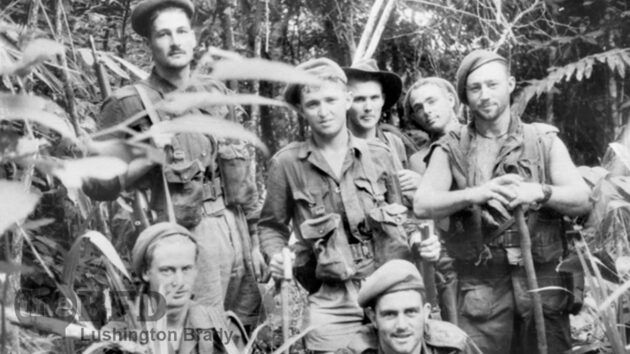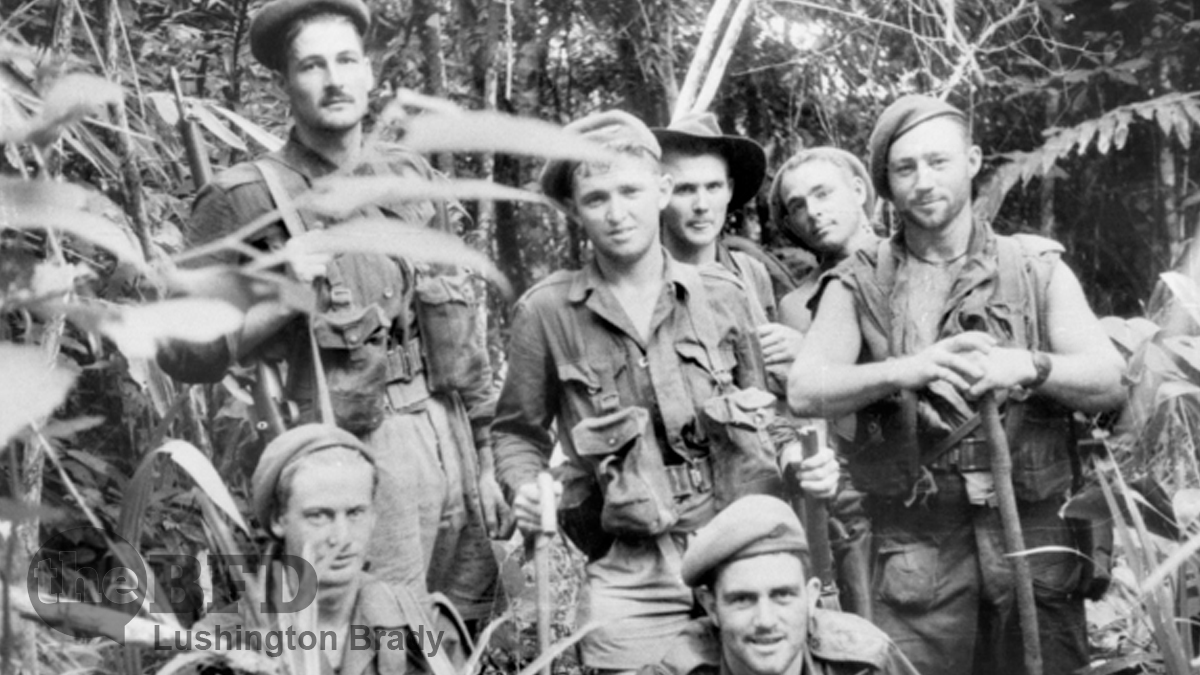Every August we go through the same dreary ritual: a bunch of hand-wringing journalists and academics witter about whether the atomic bombings of Hiroshima and Nagasaki were “justified”. To the people who lived and fought Imperial Japan, though, the issue was beyond question.
For many of that generation, the bitterness and outright hatred for a brutal enemy lasted long after the war had ended and Japan had become one of Australia’s closest allies. The scars of the Pacific War lasted longer than in Europe.
Twenty-first century Australians have a ghostly, dreamlike collective comprehension of the Second World War in the Pacific […]
The war in South-East Asia and the Pacific was not fought on front lines between massed armies, as it was on the Eastern Front in Russia. The islands between Japan and Darwin are beyond counting (what is now Indonesia alone is made up of over 17,000), and every one of them was a potential, or actual, battlefield.
This is the history that few of us today are aware of. But few of the War generation knew the full history of the Pacific War, either.
In Secret & Special, historian Will Davies pushes, shoves and drags the reader through the steamy, swampy and secretive war fought by Australian special forces from 1942 until well after the official Japanese surrender in this anarchic archipelago. And fair enough too, because this is, and was, no stroll in the park.
At least two of my uncles fought in the Pacific. Neither of them talked about it. At one funeral, my cousins remarked that it was a regular occurrence for their dad to wake screaming in the night. Another was officially a driver in the army, though one of his mates at his funeral spoke cryptically of their commando training.
There was nothing glamorous or precise about these soldiers’ work, and the names of the men who actually carried it out are not to be found in many of the histories of the conflict.
Their guerrilla war was ugly, terrifying and brutal, and failure was inevitably fatal.
The units they worked within, and the HQs they were responsible to, changed their names almost at random, and after the end of hostilities, it was decades before most of the operational detail was finally declassified.
Most of them went to their graves, either killed in action, lost at sea, or years later at home, officially unrecognised.
Before judging this as official bastardry, it must be remembered that WWII almost immediately plunged into the Cold War. Many secrets of WWII – such as the code-breaking at Bletchley Park – remained secrets for decades.
What we do know about the guerrilla war in the Pacific is an astonishing testament to that generation of stoic heroes.

From 1942 on, these young men were sent into places they’d never heard of, by generals who only had maps, charts and hearsay to tell them next to nothing about what conditions their men would face.
Dropped by submarine and left to paddle their way into the heart of the Japanese naval base in Singapore in kayaks, to plant limpet mines on ships and blow them to bits. Putting their trust, and their lives, in the hands of locals who might fight alongside them to the death, or betray them for a handful of coins, or simply to save their families from slavery.
They had no idea what the next day would bring, but they kept at it, and they deserve their place in the public record.
Will Davies’ book is a welcome step in that direction.
Davies tells the stories of willing volunteers for potentially suicidal missions, put through a torturous selection process in the jungles of far north Queensland.
He does a meticulous and riveting job of salvaging, from the dusty files of military secrecy, the remarkable experiences of those who made the grade, only to face the Japanese Imperial Army with little but a dodgy radio and small arms.
Given rudimentary and often faulty equipment (torches that weren’t waterproof being just one of many examples), some lost their lives because of incompetence at HQ not looking for crucial code words. Words that, if not included in transmissions, were by their very absence telling superiors that the radios they’d risked their lives to drag up rain-drenched tracks to install had been captured, and were being used by the Japanese to send false intelligence.
The Australian
The enduring secrecy of the Pacific War holds a lesson for modern times. For the past decade and more, another generation of young Australian men have been sent off to fight against a brutal, implacable enemy in places they’ve never heard of and alongside locals who might fight alongside them to the death, or betray them for a couple of goats – or just open fire on them in the supposed safety of base camp.
But at least the Pacific veterans didn’t have to fight the hostility of their own media, all-too-ready to accuse these brave young men of the worst crimes imaginable.
Secret & Special: The untold story of Z Special Unit in the Second World War is available from Penguin Books.
Please share this article so that others can discover The BFD

